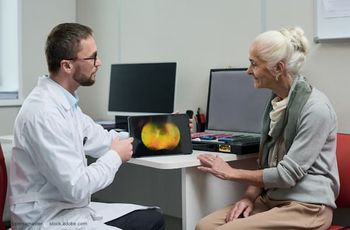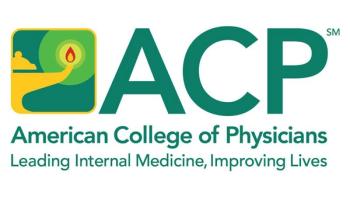
EyeBio dosed first participants for Phase 1b/2 AMARONE clinical trial for DME and nAMD
EyeBio has begun the dosing of the first participants in its Phase 1b/2 AMARONE clinical trial for the treatment of diabetic macular edema (DME) and neovascular age-related macular degeneration (nAMD).
Eyebiotech Limited (EyeBio) announced in a press release that the company has begun the dosing of the first participants in its Phase 1b/2 AMARONE clinical trial for the treatment of diabetic macular edema (DME) and neovascular age-related macular degeneration (nAMD). This trial will evaluate the safety and preliminary efficacy of intravitreal (IVT) Restoret™ (EYE103) and is the first clinical trial from EyeBio’s diversified pipeline of multi-specific antibodies.
Tony Adamis, MD and Chief Scientific Officer of EyeBio shared insights as to how this potential treatment may dry retinas and lead to better patient outcomes. In the press release he said, “Restoret has the potential to address a major unmet need in these diseases, namely excess fluid in the retina. Anti-VEGF registrational trials and real-world data both show that excess fluid leads to poorer vision, and the longer that fluid resides in the retina, the less opportunity there is to recover vision. Improved drying of the retina is the clearest opportunity for improvement in patients’ outcomes. Restoret addresses a new biology, which is critical if we want to deliver results beyond those seen with anti-VEGF alone.”
Restoret is an investigational, intravitreally delivered, tri-specific antibody that acts as an agonist of the Wnt signaling pathway. It is designed to resolve residual fluid in the retina and to improve visual acuity in individuals with NVAMD and DME, as well as other retinal diseases of permeability.
Jonathan Prenner, MD and Chief Medical Officer of EyeBio added his hopes for this drug in combating DME and nAMD in the press release. He said, “Initiation of the AMARONE trial marks an important milestone in our mission to address the urgent unmet need for individuals living with neovascular age-related macular degeneration and diabetic macular edema. More than 60 percent of patients have suboptimal outcomes and more than 30 percent have active disease despite treatment with anti-VEGF agents. Restoret may present an opportunity to break through the efficacy ceiling we have reached with anti-VEGF standard of care.”
The first participants dosed in the AMARONE trial were treated by J. Edward Ysasaga, MD, of Southwest Retina Specialists and Mark Barakat, MD, of Retinal Consultants of Arizona.
“Anti-VEGF monotherapy has been the gold standard for nearly two decades in retinal vascular diseases, and we are so pleased to study the impact of a new pathway,” said Dr. Ysasaga via the press release. “Our hope is that Restoret represents a new avenue past the ceiling we have hit with the standard of care. Durability remains important, and we are excited to pursue research towards improved efficacy and vision, which is our ultimate goal.”
“We are excited to begin this investigation into the effect of Wnt pathway agonism in retinal disease,” said Dr. Barakat. “While the scientific rationale has been understood for decades, we finally have a potential treatment that takes advantage of this novel mechanism of action, in hopes of helping patients with blinding diseases.”
About the AMARONE Clinical Trial
The Phase 1b/2 AMARONE (Anti-permeability Mechanism and Age-Related Ocular Neovascularization Evaluation) clinical trial is a multi-centre two-part trial consisting of an open-label multiple ascending dose (MAD) safety study, and a dose-finding single-masked comparative safety and preliminary efficacy study of intravitreal (IVT) Restoret™ (EYE103) in participants with diabetic macular edema (DME) and neovascular age-related macular degeneration (NVAMD). The trial plans to enroll up to 92 participants, who will receive 12-week regimens of Restoret. The primary endpoints of the AMARONE trial are safety and mean change in best-corrected visual acuity (BCVA) from baseline to Week 12 in the study eye of the participants, using the standardized ETDRS (Early Treatment of Diabetic Retinopathy Study).
About Restoret, a Wnt agonist tetravalent tri-specific antibody
Restoret™ is a tri-specific Wnt agonist antibody, built based on AntlerA’s ANT-Pharm technology. It is designed to address urgent unmet medical need in patients with back-of-the-eye diseases. Restoret aims to eliminate leakage in vascular diseases by agonizing the Wnt pathway to both restore and maintain the blood-retinal barrier. The result of a breakthrough in molecular design, Restoret will enable the clinical translation of the extensively studied Wnt pathway for the first time in the eye. Published research has shown that Wnt signaling in the retina plays a central role in the maintenance of vascular integrity, and defects in Wnt signaling cause retinal vascular leakage. A mimetic of norrin, which is the natural Wnt ligand in the eye, Restoret has demonstrated efficacy in preclinical ophthalmic models, including validation in genetic models.
Reference:
EyeBio Announces First Patients Dosed in Phase 1b/2 Trial of Restoret™ in Neovascular Age Related Macular Degeneration and Diabetic Macular Edema. Eyebiotech Limited, June 14, 2023. Accessed June 16, 2023. https://www.businesswire.com/news/home/20230614951729/en/EyeBio-Announces-First-Patients-Dosed-in-Phase-1b2-Trial-of-Restoret%E2%84%A2-in-Neovascular-Age-Related-Macular-Degeneration-and-Diabetic-Macular-Edema
Newsletter
Keep your retina practice on the forefront—subscribe for expert analysis and emerging trends in retinal disease management.




























